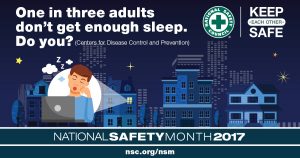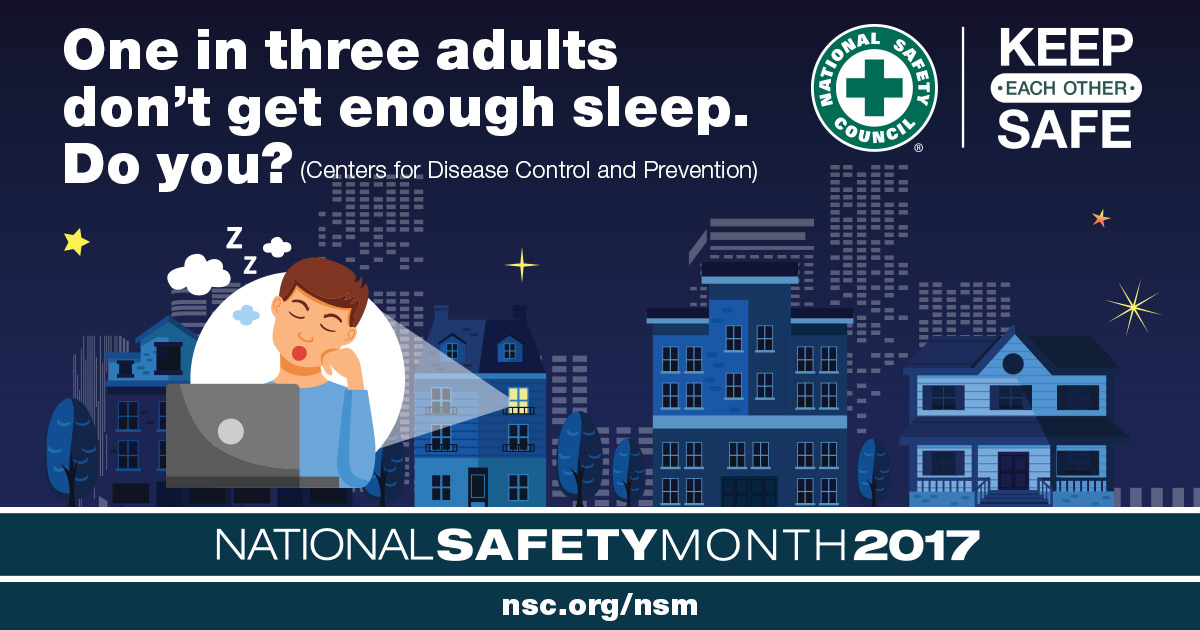June is National Safety Month
Week 2: Recharge to Be in Charge (Focusing on Fatigue)
Through the month of June, we are focusing on safety topics impacting people in both the occupational and non-occupational environments. The second topic in our series is sleep deprivation.

Did You Know?
An estimated 37% of the working population is sleep deprived. Sleep deprivation can be either chronic or acute. Diet, health, lifestyle, work hours, environment and habits can all play a part in depriving people of sleep. A lack of sleep can lead to fatigue, inattention and waking micro-bursts of sleep (brief moments of unawareness or unconsciousness), which adversely affects the brain and cognitive function. This can be particularly dangerous if one is driving, operating equipment or engaged in other high hazard activities. Sleep deprivation can also lead to safety concerns such as slips, trips and falls which we discussed in last week’s communication. Remember it remains a leading cause of injury both in and out of the workplace.
The National Safety Council has offered several tips to help reduce sleep deprivation:
Get 7-9 hours of sleep every day.
- Create and follow a sleep schedule. Go to bed and wake up at the same time every day – even on weekends.
- Eliminate unnecessary light.
- Keep your bedroom temperature neutral – neither hot nor cold. If noise is a problem, try earplugs, a fan or a “white noise” machine to cover up the sounds (remember you need to hear your alarm clock).
- Make sure your bed and pillows are comfortable and support restful sleep.
- Avoid eating right before bed.
- Remember that bedtime is for sleeping, not reading or watching TV.
- Avoid using electronic devices before bed which can inhibit sleep.
- Turn off “notifications” on your phone (Facebook, Snapchat, etc.)
- Drink caffeine only in the morning.
- Caffeine has a 6-hour half-life, which means it takes a full 24 hours to work its way out of your system. Have a cup of joe at 8am and you’ll still have 25% of the caffeine in your body at 8pm.
- Get regular exercise, however, try not to exercise close to bedtime. It may stimulate you and make it hard to fall asleep. Experts suggest not exercising for at least 3-4 hours before bedtime.
- If you have trouble lying awake and worrying about things, try making a “to-do” list before you go to bed. This may help you avoid focusing on those worries overnight.
Stay tuned! Next week we’ll be talking about Active Shooter Safety.
Thank you and Stay Safe!
Greg, Glenn, and Your Team at Madison Insurance

